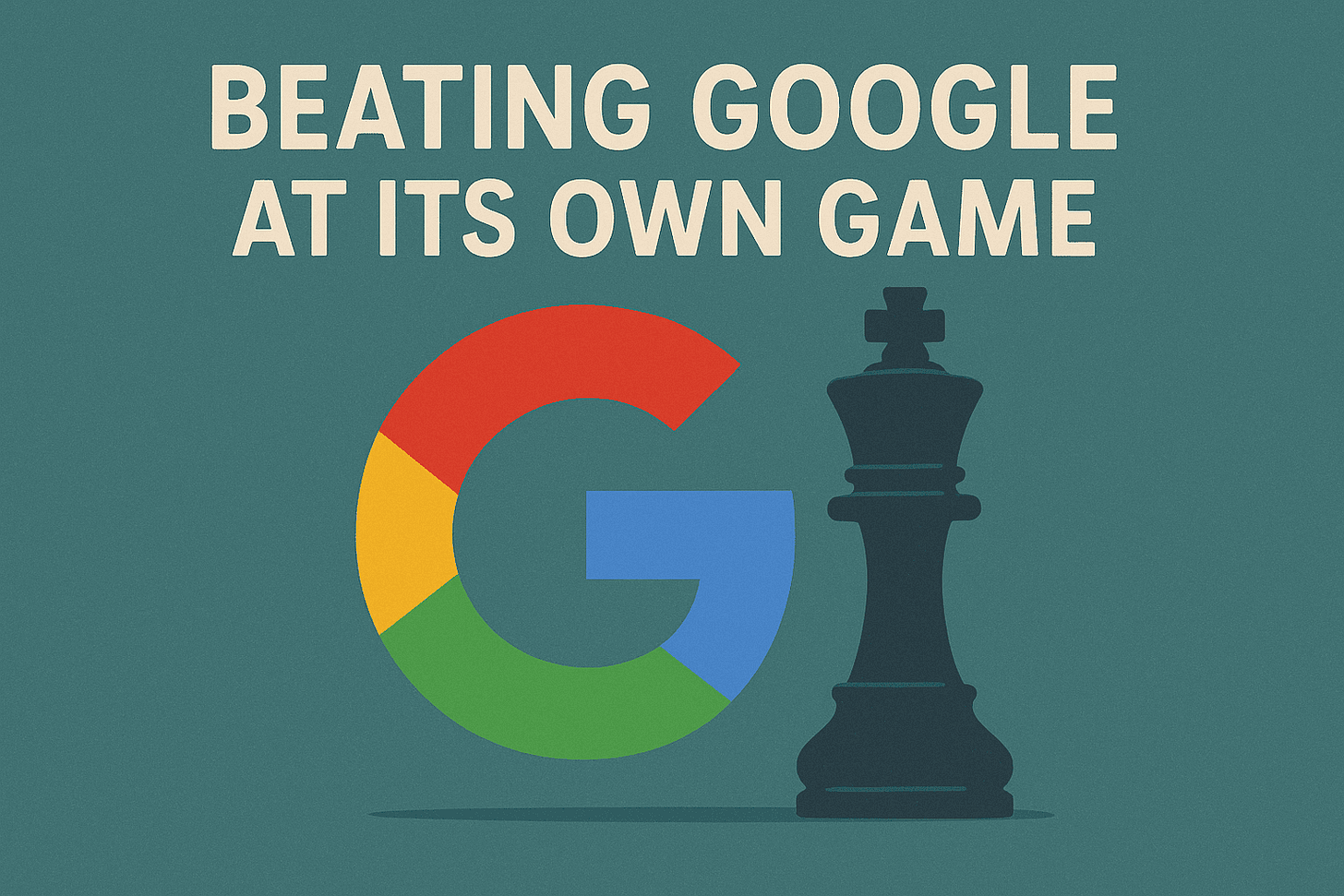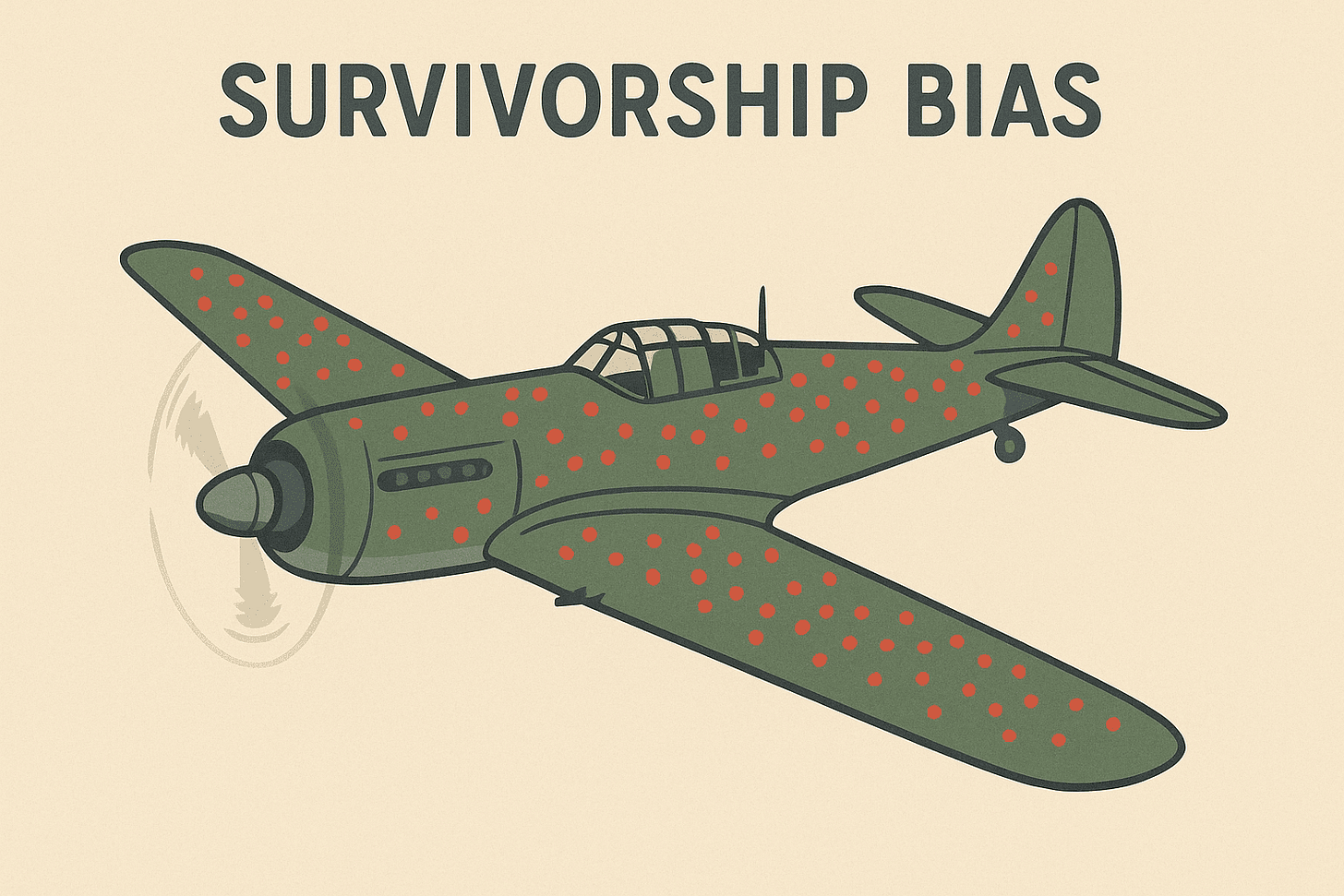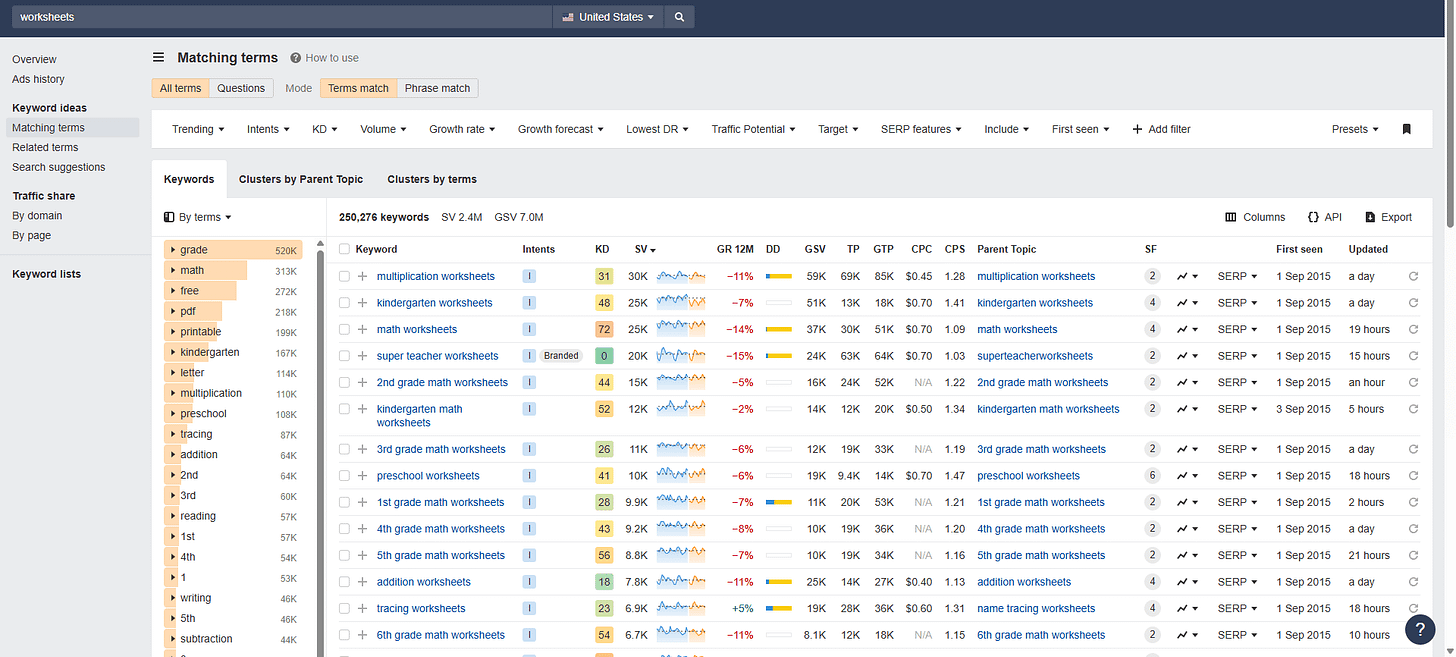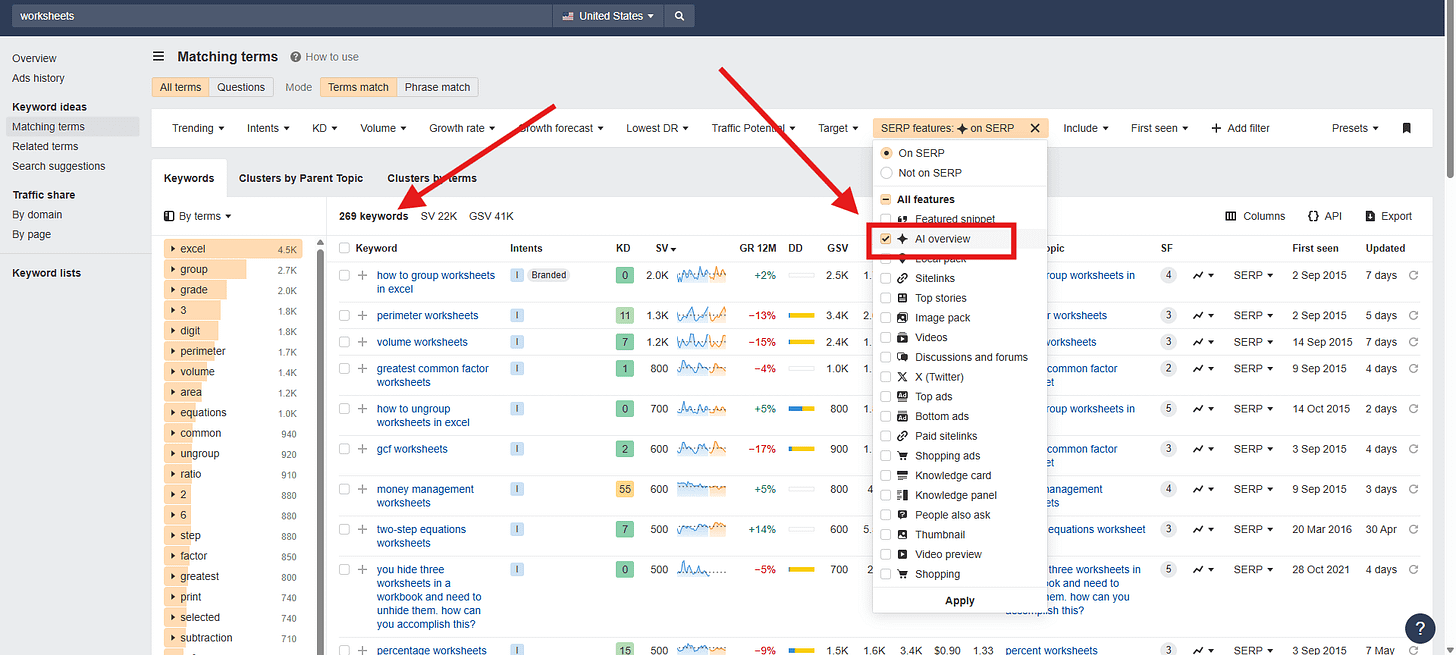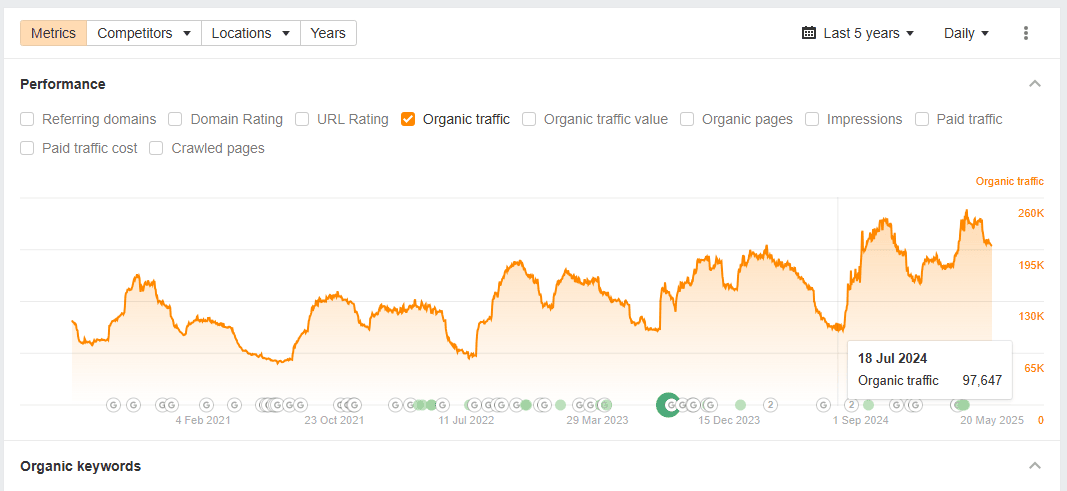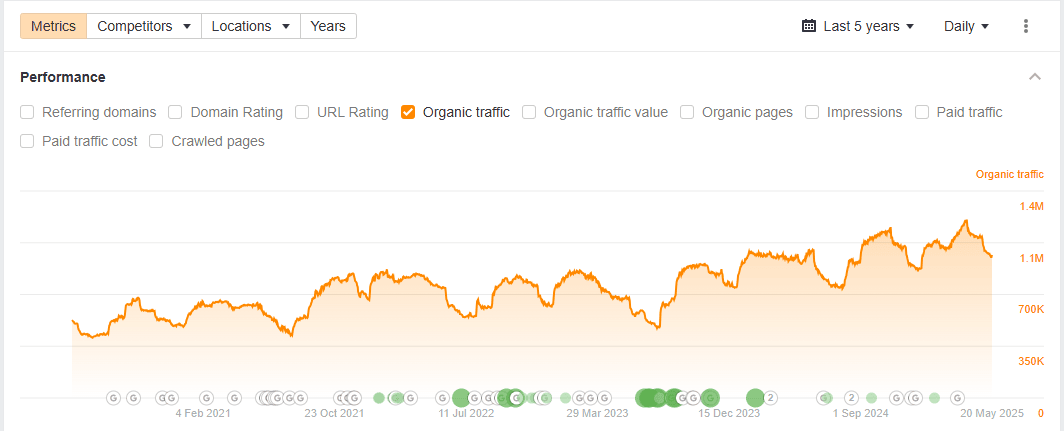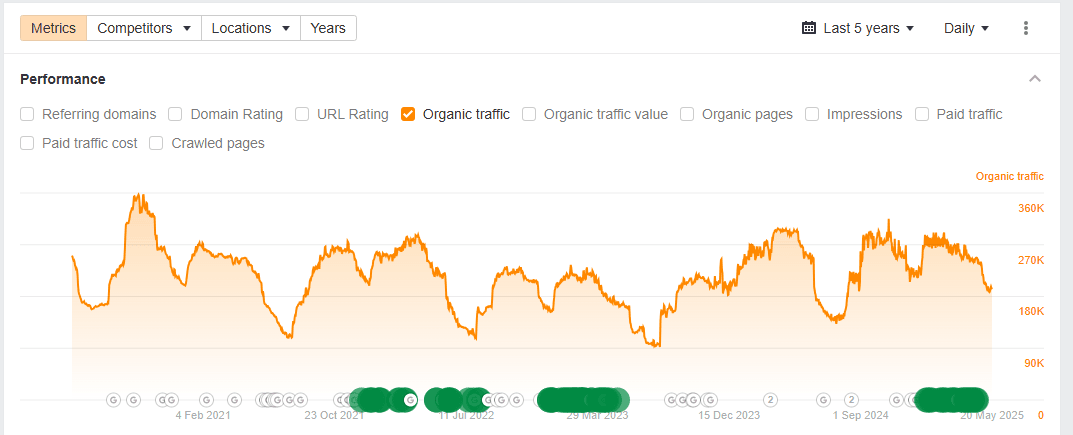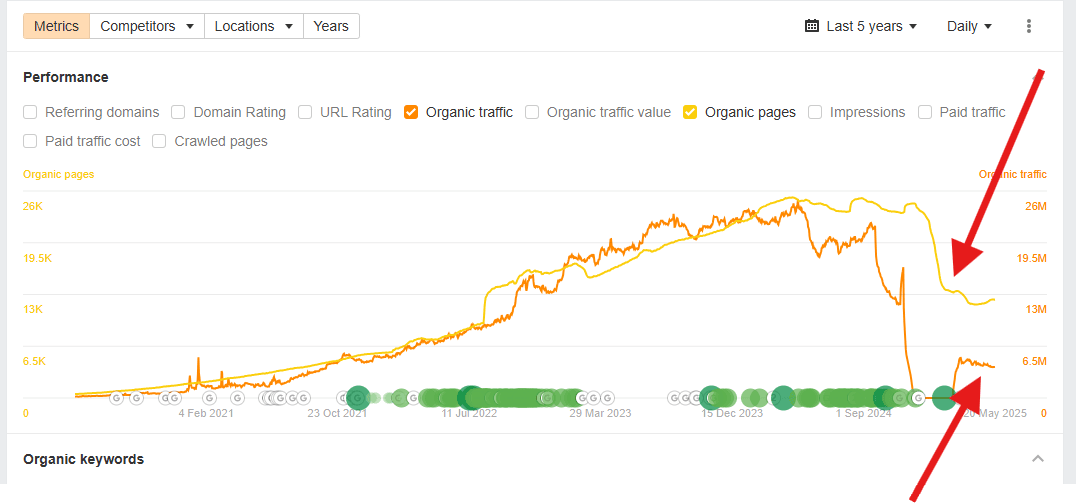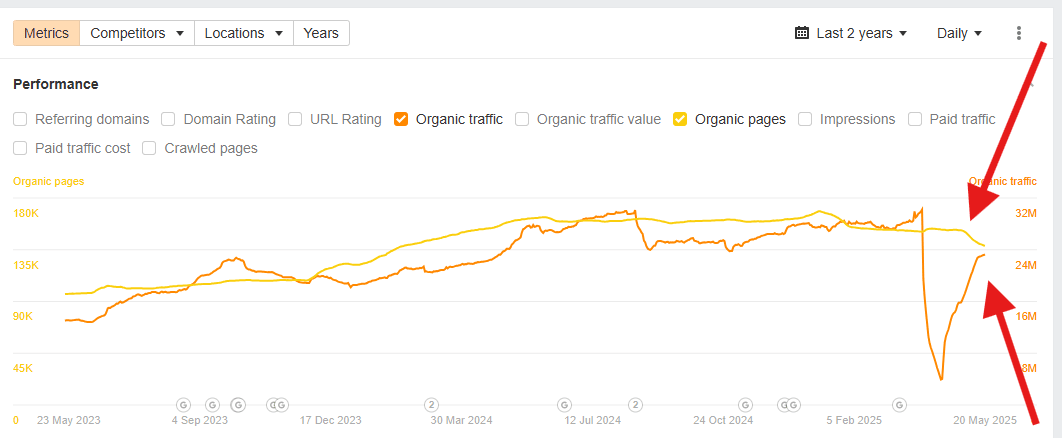Beating Google at It's Own Game
We all know for a fact that AI Overviews are eating through organic clicks and impacting CTR. But Google says otherwise 😏 I had to put this quote from in a RED BOX because Google NEVER LIES:
💡 "With AI Overviews, people are visiting a greater diversity of websites for help with more complex questions. And we see that the links included in AI Overviews get more clicks than if the page had appeared as a traditional web listing for that query. " ~ Google
Here's another from Sundar Pichai interview with the Verge:
And because Google NEVER lies, study after study coming out of the SEO community that shows how AI Overviews are just bad for organic clicks! A study by Ahrefs shows that AI Overview in the search results correlated with a 34.5% lower average clickthrough rate (CTR) for the top-ranking page.
The current direction in SEO is to try to get cited in AI Overviews. That's a good approach and I have discussed previously in my blog about the new SEO playbook an example on how to get cited in AI Overviews.
Today, we're flipping the narrative, by putting Google in a situation where they HAVE to send the user to our websites... wait a minute Sara, is this doable? let's see.
TL;DR
In a study by Ahrefs that analyzed 300,000 keywords and found that the presence of an AI Overview in the search results correlated with a 34.5% lower average clickthrough rate (CTR) for the top-ranking page, compared to similar informational keywords without an AI Overview.
We suffer from survivorship bias in SEO where we are focused on analyzing websites that got hit more than websites that stayed safe.
Some websites are not impacted whatsoever by AI Overview and HCU because they go after action oriented keywords and stay in their lane with relevant content.
Go after keywords that shows the intention of the user to take action on the website.
But also, build pages, that encourage user engagement and some type of action on the page. Don't build pages just for scrolling.
Prune, prune and prune spammy and irrelevant content.
Survivorship Bias in SEO
You've probably heard this story before. During World War II, engineers wanted to add extra protection to the parts of planes that had the most bullet holes. They looked at the damage on the planes that came back from battle. But the statistician, Abraham Wald said they were missing an important point: the planes that didn’t come back were probably hit in different spots—the ones that didn’t have much damage on the planes that survived. That is survivorship bias.
In SEO, we suffer from survivorship bias. Instead of focusing on analyzing websites that are not impacted by AI Overviews, HCU and so on... we go after the ones that are impacted.
It's not wrong, but it definitely provides one-sided view of the situation.
Anyways, I saw on twitter the other day someone talking about how a website in the "homeschooling pintables" niche is not impacted by AI Overviews or HCU whatsoever.
Why? let's dig in 🤩
Immunity against AI overviews
I used Ahrefs to analyze the traffic behavior of websites ranking for educational printables and worksheets.
I decided to look at all keywords that include the term "worksheets":
You'll see there's a total of 250,276 keywords, with a global search volume of ~7 million. But when I filter by keywords that HAVE AI OVERVIEWS, I get this:
Only 269 of the keywords have ai overviews. You'll see a similar pattern when you try other terms like "printables".
That tells us 2 things:
The no brainer: websites ranking for keywords with no ai overviews maintained their clicks... duh....
Annndddddddd.... keywords that require the user to take an action of any sort, cannot be answered by ai overviews. AI overviews is not useful for those keywords because users are looking to "download" something which has to be done on the website.
Immunity against HCU
Another thing I did is, I looked at the top ranking websites for the keyword "multiplication worksheets". And by the look at it, it's true those websites are not impacted by ANYTHING 😄 The only dips you'll see in those graphs are seasonal dips that happen at summer as people don't do much studying in summer (I assume).
First result:
Second result:
Third result:
I spot checked other websites for other similar keywords, and while we obviously cannot generalize, we can make some assumptions. These websites were not impacted by HCU for two main reasons:
They stay in their lane, focused on only related content.
Users take actions on those websites, where users consistently take action to "download" something is a major contributing factor to the HCU immunity those websites seem to have.
I guess that aligns with the recoveries of both Forbes Advisor and GeeksForGeeks both of which are making comebacks. Note the number of pages vs. organic traffic.
Forbes advisor subfolder seem to have removed tons of pages:
Same for GeeksForGeeks, they are seeing a comeback after removing the irrelevant content they were starting to roll out!
Ok Sara, give us the tea 🍵 already!
Few things will keep your website floating in search:
Removing any spammy low quality irrelevant content from your website and keeping it that way.
Making sure that every page (as much as possible) there's an action the user takes, and motivation for the user to take that action. Downloadable, newsletter signups, etc... don't build pages that are just for browsing.... incite user engagement one way or the other... that will build you authority in search overtime.
Go after action oriented keywords. High search volume keywords don't matter if you cannot get the clicks anyways right? Look for keywords that require an action to be taken on websites and AI overviews cannot really fulfill those intents, and prioritize them.
That's that for today folks! See you next week 😄
*Disclaimer: AI tools were used to help me phrase a paragraph of this blog [can you find it?😄]

